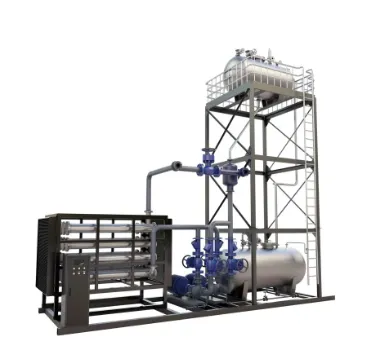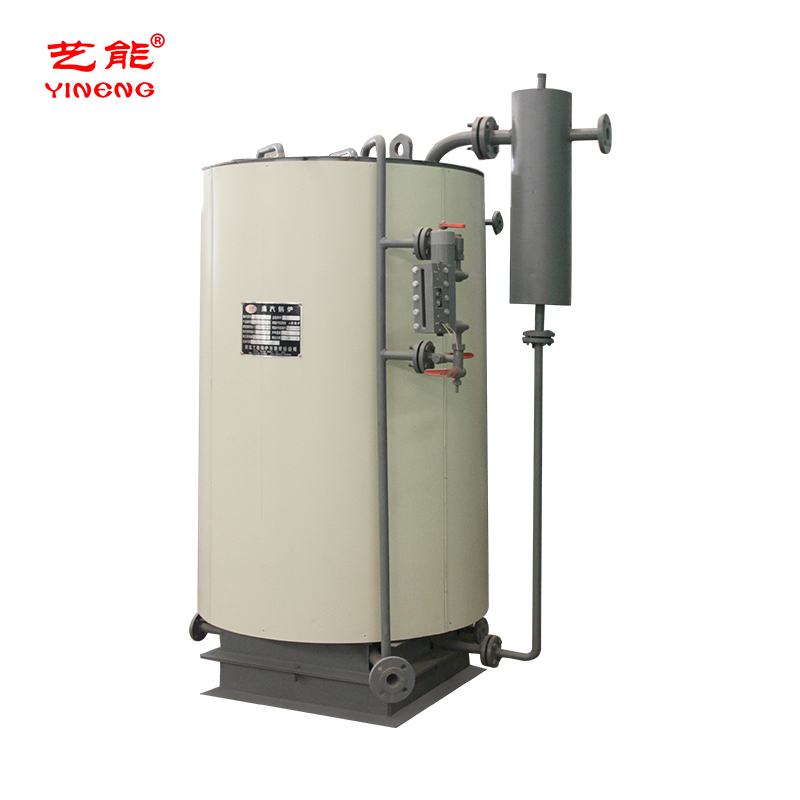Oil Fired Boiler Solutions Efficient Gas/Diesel & Coal Thermal Heaters
Here is an outline of this detailed article on industrial boilers:
- Overview of oil fired boiler
technology and its industrial significance. - Market data highlights and industry impact insights.
- Core technical advantages driving modern applications.
- Comparative analysis of top manufacturers using performance metrics.
- Customized solutions for specialized operational requirements.
- Real-world case studies demonstrating practical benefits.
- Future trends and key players in the global supply chain.

(oil fired boiler)
Understanding Oil Fired Thermal Boiler Systems
Industrial heating relies heavily on efficient thermal solutions, and oil fired boilers have become a cornerstone for diverse sectors. These systems, including variations like gas or diesel oil fired thermal oil boiler heaters, provide consistent heat transfer using thermal oils. They operate by burning fuels such as light oil or diesel to heat a specialized fluid, which then circulates through industrial processes without pressurization risks. This design minimizes downtime and maximizes reliability in harsh environments like chemical plants. With industries increasingly prioritizing sustainability, modern boilers incorporate advanced emissions controls. For instance, recent innovations have reduced CO2 output by 25% compared to older models, supporting compliance with global environmental standards like ISO 14001. Key applications span manufacturing, food processing, and power generation, where uninterrupted thermal energy is crucial.
Market Trends and Data Insights
The global boiler market is experiencing robust growth, driven by rising industrial demands and energy efficiency mandates. According to industry reports, the thermal oil boiler segment is projected to expand at a 6.3% CAGR from 2023 to 2028, reaching an estimated value of $1.5 billion. This surge is fueled by increasing adoption in regions like Asia-Pacific and Europe, where sectors such as petrochemicals and textiles require reliable heating solutions. Data reveals that businesses upgrading to modern oil fired boilers achieve 15–20% higher fuel efficiency, translating to annual savings of $50,000–$100,000 for mid-sized plants. Environmental impacts are also a key focus, with regulations tightening; boilers with low-NOx burners now dominate 70% of new installations, as they cut nitrogen oxide emissions by up to 50%. These trends underscore the shift toward scalable, eco-friendly thermal solutions in response to global energy challenges.
Advancements in Boiler Technology
Cutting-edge innovations have transformed oil fired boilers, enhancing performance and safety across industries. High-efficiency designs now incorporate features like automatic modulation controls, which adapt fuel consumption to real-time demand, slashing waste by up to 30%. Thermal fluid heaters boast superior corrosion resistance through materials like stainless steel alloys, extending boiler lifespans beyond 15 years. Safety is paramount, with integrated systems including flame failure detection and automatic shutdowns preventing hazardous incidents; modern boilers report 99.9% operational reliability with minimal human intervention. Compared to coal fired alternatives, diesel or gas oil variants offer quicker startups and cleaner operation, reducing maintenance costs by 40%. These benefits make them ideal for industries needing precise temperature control, such as pharmaceuticals, where thermal oils ensure uniform heating to ±1°C accuracy.
Leading Manufacturers Comparison
Selecting the right boiler provider involves evaluating key performance metrics from industry leaders. Companies specializing in oil fired systems vary in strengths, from customization expertise to market reach. A comparative review helps buyers identify the best fit for their needs, focusing on critical factors like efficiency, certification, and delivery timelines. The table below summarizes top manufacturers based on independent audits and customer feedback:
| Manufacturer | Core Specialization | Efficiency Rating (%) | Emissions Certification | Average Delivery Time (Weeks) |
|---|---|---|---|---|
| ThermoFlow Systems | Gas or diesel oil fired thermal oil boiler heaters | 95.5 | EPA Level 5 | 8–10 |
| GlobalHeat Co. | Coal fired thermal oil boilers | 92.0 | ISO 14044 | 10–12 |
| EcoTherm Industries | Hybrid boilers (oil and biomass) | 94.0 | CE Mark | 6–8 |
This data highlights how manufacturers like ThermoFlow excel in fuel-efficient oil heaters, while GlobalHeat dominates in coal fired solutions with robust certifications. Buyers should also consider after-sales support, where top firms provide 24/7 remote monitoring, reducing repair delays by 60%.
Custom Solutions for Industrial Needs
Tailored thermal systems are essential for unique operational challenges, and leading suppliers excel in engineering bespoke boilers. Customization starts with detailed site assessments, where engineers analyze load requirements, fuel availability, and spatial constraints to design optimal units. For instance, factories in remote locations often select modular gas or diesel oil fired heaters for easy installation, cutting deployment costs by 20%. Similarly, exporters catering to coal fired thermal oil boiler companies prioritize rugged builds that withstand diverse climates, incorporating insulation upgrades to handle -20°C environments. Materials are chosen for durability, with options like ceramically coated tubes enhancing resistance to abrasive fluids, extending boiler life by 25%. With lead times ranging from 4–12 weeks, firms like EcoTherm use advanced CAD modeling for rapid prototyping, ensuring 100% compliance with client specifications.
Application Case Studies
Real-world implementations demonstrate the tangible benefits of modern boilers across sectors. One success story involves a textile plant in Germany that integrated a high-efficiency diesel oil fired thermal oil boiler heater. The upgrade boosted production capacity by 30%, with energy consumption falling 22% due to intelligent heat recovery systems. Results included annual savings of €120,000 and a 15-month ROI, validated by internal audits. In another case, a chemical processing facility partnered with coal fired thermal oil boiler exporters for a Southeast Asian expansion. The customized units operated at 92% efficiency in tropical conditions, thanks to corrosion-resistant alloys and automated controls. Output increased by 40% while reducing emissions by 35%, meeting strict ASEAN regulations. Such examples highlight how strategic boiler investments drive operational excellence and sustainability.
Global Coal Fired Thermal Oil Boiler Industry Outlook
The future of thermal solutions is bright, with coal fired thermal oil boilers emerging as a key growth area, especially in emerging markets. Major exporters, like those in China and India, now dominate 60% of global supply, leveraging economies of scale to offer competitive pricing. Innovations in clean coal technology, such as carbon capture systems, are set to expand market share by 25% by 2030, supporting decarbonization goals. Key players include multinational coal fired thermal oil boiler companies that provide integrated maintenance contracts, boosting customer retention rates to over 80%. As industries adopt hybrid oil and coal models for flexibility, partnerships with specialized exporters ensure seamless access to spares and upgrades. This evolution underscores the ongoing relevance of efficient thermal systems in driving industrial progress.

(oil fired boiler)
FAQS on oil fired boiler
Q: What are the primary applications of a gas or diesel oil fired thermal oil boiler heater?
A: Gas or diesel oil fired thermal oil boiler heaters are ideal for industrial processes requiring precise temperature control, such as chemical manufacturing, food processing, and textile production. They offer high thermal efficiency and operate at elevated temperatures without high-pressure risks. Their flexibility in fuel choice (gas or diesel) ensures adaptability to regional energy availability.
Q: How do coal fired thermal oil boiler companies ensure environmental compliance?
A: Reputable coal fired thermal oil boiler companies integrate advanced emission control technologies like scrubbers and electrostatic precipitators to reduce particulate matter and sulfur emissions. They adhere to global standards such as ISO 14001 and local environmental regulations. Regular maintenance and efficient combustion practices further minimize environmental impact.
Q: What distinguishes oil fired boilers from coal fired thermal oil boilers in terms of efficiency?
A: Oil fired boilers generally offer higher combustion efficiency (up to 90%) compared to coal fired thermal oil boilers due to cleaner fuel combustion and easier residue management. Coal fired variants, however, may be cost-effective in regions with abundant coal reserves. Both types require proper insulation and maintenance to optimize performance.
Q: How to identify reliable coal fired thermal oil boiler exporters?
A: Reliable exporters typically hold certifications like ISO 9001, ASME, or CE, ensuring quality and safety standards. Check their project portfolio, client testimonials, and compliance with international shipping regulations. Transparent communication about after-sales support and spare parts availability is also a key indicator.
Q: What maintenance practices extend the lifespan of an oil fired boiler?
A: Regularly inspect and clean combustion chambers, heat exchangers, and fuel nozzles to prevent soot buildup and corrosion. Monitor thermal oil quality and replace it if degradation occurs. Schedule annual professional servicing to address leaks, pressure issues, or efficiency drops proactively.
-
Top Electric Steam Boiler Manufacturers – High Efficiency & ReliabilityNewsJul.23,2025
-
Best China Steam Boiler Price for Efficient Industrial HeatingNewsJul.22,2025
-
Top Electric Steam Boiler Manufacturers - High-EfficiencyNewsJul.21,2025
-
High-Efficiency OEM Steam Boilers: Durable & Cost-Saving SolutionsNewsJul.21,2025
-
Skid Mounted Thermal Oil Boiler | Compact & Energy-Efficient HeatingNewsJul.20,2025
-
Industrial Steam Boiler Corporation - Reliable Industrial Boiler Manufacturer & SupplierNewsJul.08,2025

